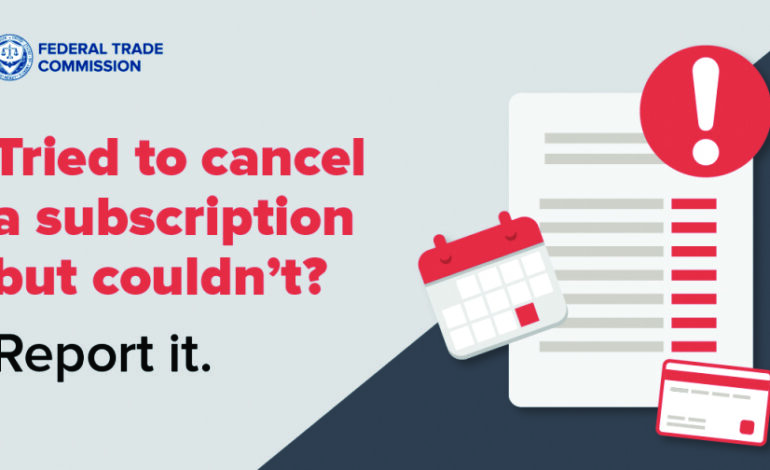By Andrew Rayo
Maybe you want to try out a product for a little while before you make a long-term decision. So, you sign up for a monthly subscription plan. Everything is fine until you want to cancel and it turns out to be a yearly subscription with monthly payments. Surprise! That’s what the FTC says happened to people who signed up for monthly subscriptions with Adobe.
When people signed up on Adobe’s website for access to its software, the FTC says Adobe pre-selected the option for its “annual paid monthly” plan that put subscribers on the hook for a whole year of payments, paid in monthly increments — a fact that Adobe failed to explain or properly disclose. The lawsuit says Adobe used similar tactics when people signed up for a free trial and didn’t cancel before the trial ended. Adobe automatically placed them on the “annual paid monthly” plan without making it clear they were entering a one-year contract.
When people tried to cancel before the year was up, they had to pay a hefty early termination fee (which was hidden during the signup process). The fee, along with other hurdles Adobe uses in its cancellation processes, made it difficult to cancel the subscription. Some subscribers who had contacted customer service even thought they had successfully canceled, only to find out later that Adobe was still charging them.
When you’re thinking about a subscription:
- See what others are saying online. Search for the company’s name and the word “subscription” plus words like “complaint”, “problem”, “cancel” and “fee” to see if people are having trouble with their subscription.
- Check the terms and conditions for free trial offers. If the subscription includes auto-renewals, you’ll be charged unless you cancel before the end of the free trial period.
The law says businesses have to give you a simple way to cancel a paid subscription with automatic billing. If you have trouble canceling a subscription service:
- Dispute unauthorized credit card charges. If you’re in a subscription, you’ve tried to cancel, and the company won’t stop charging your account, dispute it with your credit or debit card company.
- Tell the FTC at ReportFraud.ftc.gov.
—Andrew Rayo is a consumer education specialist with the Federal Trade Commission.






Leave a Reply